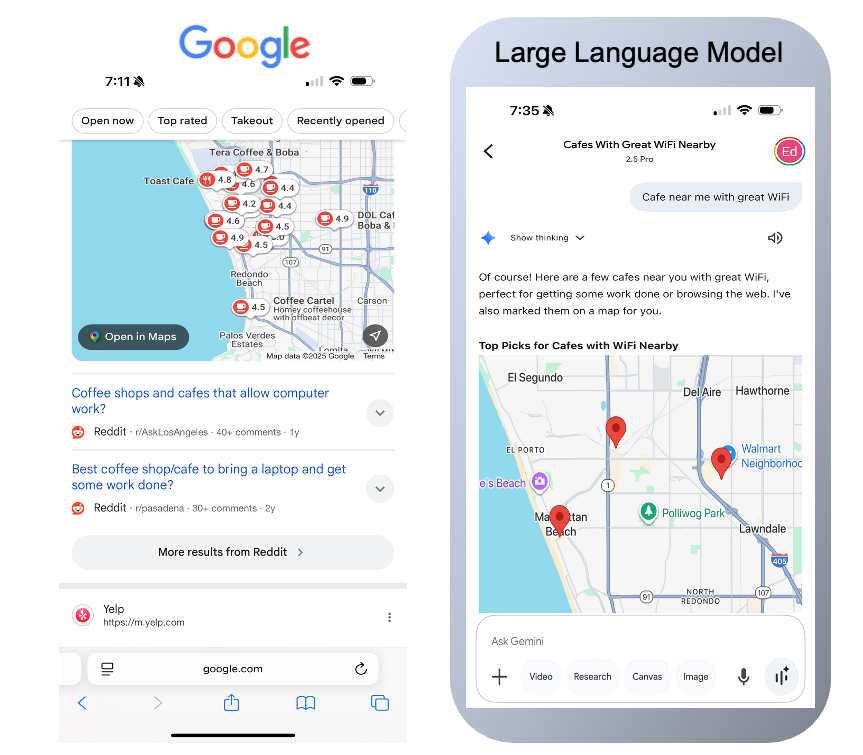For over two decades, the holy grail of online marketing has been ranking on the first page of Google. We’ve obsessed over keywords, backlinks, and technical optimizations, all in the pursuit of a coveted spot within those ten blue links. But the digital landscape is undergoing a seismic shift, one that fundamentally alters how customers find and choose local businesses. The era of the traditional Search Engine Results Page (SERP) is making way for a new paradigm: AI-powered answer engines.
Think about your own recent online experiences. Have you asked a chatbot for recommendations? Used a voice assistant to find a nearby restaurant? These interactions are powered by Large Language Models (LLMs), sophisticated AI systems that don't just index web pages; they understand and synthesize information to provide direct answers. This isn't about a list of websites; it's about getting the information you need, instantly.
The Rise of the Answer Engine
LLMs like those powering Google's Search Generative Experience (SGE) and other AI assistants are becoming the new front door for local discovery. Instead of sifting through multiple websites, users are increasingly asking direct questions and expecting immediate, relevant responses.
Consider a user in Manhattan Beach looking for the best coffee shop with outdoor seating that's dog-friendly and opens before 7 am. In the old model, they'd type in variations of "dog-friendly outdoor coffee Manhattan Beach early" and click through several results, hoping to find the right information. In the new AI-driven world, they might ask their voice assistant, "Hey AI, find me a dog-friendly coffee shop with outdoor seating in Manhattan Beach that opens before 7 am." The AI, leveraging its understanding of natural language and access to a vast amount of data, will likely provide a single, concise answer.
What This Means for Local Businesses
This shift has profound implications for how local businesses need to approach their online visibility:
- Beyond the Click: Traditional SEO focused on driving traffic to your website. In an answer-engine world, the goal is to be the source of the information the AI provides. If the LLM directly answers the user's question based on your data, you might not get a website click, but you've gained a valuable recommendation.
- The Primacy of Structured Data: LLMs excel at understanding structured data. This means your Google Business Profile, online directories, and website schema markup are no longer just "good to have"; they are essential for feeding accurate information to AI models.
- The Importance of Direct Answers: Your website content needs to directly address the questions your potential customers are asking. Think in terms of FAQs, service descriptions that answer specific needs, and clear, concise information about your location, hours, and offerings.
The era of chasing the top spot in the ten blue links isn't over entirely, but a new, AI-powered landscape is rapidly emerging. Local businesses that understand this fundamental shift and adapt their strategies will be the ones who remain visible and thrive in the age of the answer engine. In our next post, we'll delve deeper into why your current SEO strategy might be leaving you invisible to these new AI gatekeepers.

